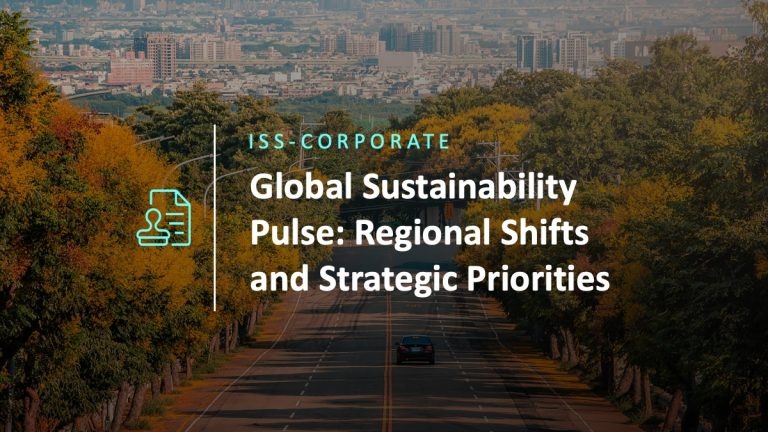Below is an excerpt from ISS-Corporate’s recently released paper “Navigating the Emissions Landscape: Uneven Paths to Decarbonization”. The full paper is available for download from the ISS-Corporate online library.
Greenhouse gas emissions and corporate efforts to reduce them have become central to the climate change discussion in recent years. As corporate disclosures on climate and emissions gain prominence, including through regulatory mandates, the focus is now shifting towards tangible actions and measurable outcomes in climate mitigation and decarbonization. While climate adaptation remains a critical part of the equation, GHG emissions reduction targets have emerged as a key tool for addressing climate challenges.
A growing number of companies are setting ambitious GHG emissions reduction goals, and those that commit to more rigorous science-based targets tend to show more meaningful progress. However, substantial challenges remain in reaching long-term climate objectives. As companies work to meet their targets, robust decarbonization strategies, tailored to their specific exposure and industry considerations, will be essential for success.
ISS-Corporate analyzed global corporate disclosure data on GHG emission and reduction targets, evaluating the current levels of transparency, exposure, and sector-specific commitments toward decarbonization. Our research reveals the following key findings:
- Growth in Emissions Disclosures: Emissions disclosures have increased substantially in the past five years, effectively becoming the norm in corporate reporting for many market segments, in response to and in alignment with market expectations and emerging regulations.
- Sector-Specific Emissions Concentration: Direct GHG emissions and emissions related to purchased energy (Scope 1 & 2) are heavily concentrated in a few sectors, such as materials, energy, utilities, and industrials. These industries face the greatest challenge in adapting to and leading the energy transition.
- Scope 3 Emissions Complexity: Scope 3 emissions (indirect GHG emissions as a result of company activities along the value chain) continue to pose significant challenges in terms of calculation and reporting. However, current disclosure trends highlight that all sectors, even low-emitting industries, face unique exposure characteristics due to varying upstream and downstream dependencies.
- Effectiveness of Science-Based Targets: Companies making commitments that align with the Science Based Targets initiative have been more effective in reducing their emissions. Companies with verified net zero science-based targets also demonstrate lower Scope 3 emissions than those whose targets are not aligned with the Science-Based Targets Initiative.
- The Need for Decarbonization Strategies: To help mitigate climate impacts and to improve stakeholder sentiment, companies will need to develop decarbonization strategies that align with global objectives related to climate, as they are expected to manage emissions across the entire value chain.
By:
Kosmas Papadopoulos, Executive Director, Head of Sustainability Advisory – Americas, ISS-Corporate
Mikiko Ollison, Vice President, Sector Manager, Sustainability Advisory, ISS-Corporate
Rudy Kwack, Senior Associate, Sustainability Advisory, ISS-Corporate




